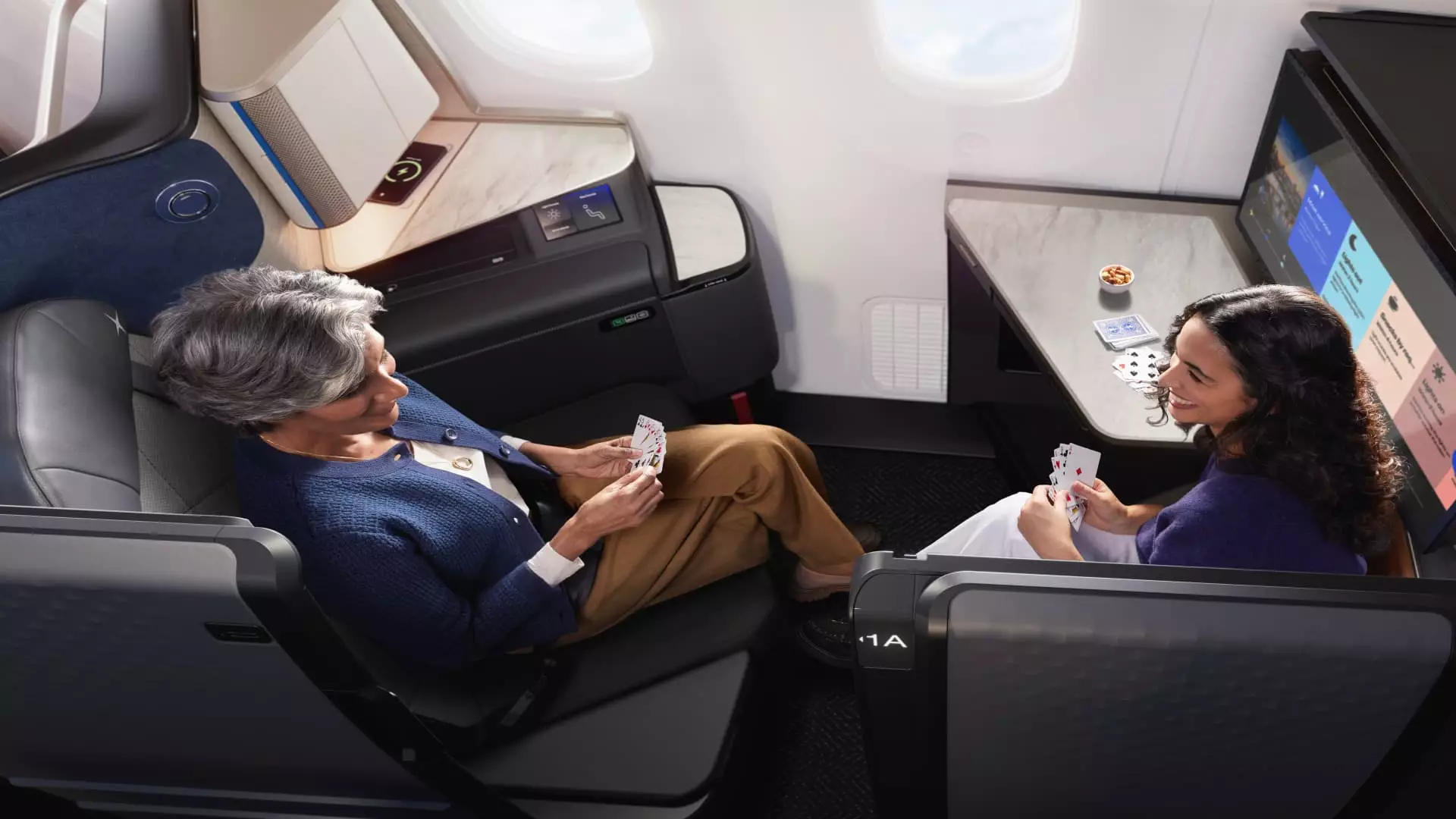In the age of hyper-competition, airlines—once mere transporters—are evolving into extravagant showcases in the sky. The latest skirmish in this aerial arms race is occurring within the realm of international business-class travel, with U.S. airlines aggressively vying for domination. While certainly attractive, this competition raises deeper questions about consumerism and the evolving nature of luxury, all while evoking a sense of both admiration and skepticism.
The Arms Race of Aboard Elegance
American Airlines and United Airlines are not simply upgrading their offerings; they are crafting experiences that could rival five-star hotels. American’s newest suites boast features like sliding doors, trinket trays, and even wireless charging pads—a modern-day equivalent of traveling in a luxury vehicle. Meanwhile, United has introduced “Polaris Studios,” complete with 27-inch 4K screens and options for visitors to lounge. It’s a grand spectacle of amenities, designed to cater to the plush tastes of the affluent traveler.
On the surface, one would applaud such developments, but this relentless push to outdo rivals poses a double-edged sword. The concept of luxury is shifting from something that implies genuine quality and distinction to a competitive need for superficial technological enhancements. At what point do these inventions and experiences become excessive? The focus should arguably be on delivering a comfortable and efficient travel experience rather than outlandish gimmicks that seek to define opulence by quantity over quality.
Exclusivity at a Price
The numbers speak volumes: American Airlines is pricing its exclusive flights at nearly $6,000 for a route that, at the same time, features standard coach tickets for less than $900. It’s a jarring reminder that the market for premium travel is inherently fraught with economic disparities. Travel, particularly in its upper echelons, becomes a realm only accessible to society’s elite, leaving the majority with a sense of exclusion and alienation.
As Robert Mann aptly points out, the economy class experience has become so dismal that the allure of splurging on business class tickets is heightened. Yet, while many may wish for elevated experiences, such distinctions merely highlight a societal divide, creating an environment where traveling becomes akin to a status symbol rather than a necessity.
Market Assumptions: A Fragile Confidence
The airline executives face a paradox as they place bets on the luxurious cabinet upgrade strategy amid economic uncertainty. Companies like Delta, American, and United are convinced that premium demand remains robust—even in the face of potential recession. However, relying solely on the wealth of the upper class while neglecting the vast ranks of middle-class travelers poses risks. This reliance results in a skewed market where innovation caters almost exclusively to the affluent, risking alienation of a larger client base that once benefited from more inclusive offerings.
It’s easy to sacrifice middle-ground offerings for upscale exclusivity, but such short-sightedness undermines the potential for airlines to foster loyalty among a wider audience. The shift towards upgrading services must be complemented by reconsidering the offerings available to the average traveler, who keeps the industry afloat.
Luxury’s Declining Value Proposition
As first class and business class begin to converge in terms of amenities, one must ponder the actual value of increased spending on luxury air travel. Sure, there’s the allure of amenities such as “unlimited” caviar or plush bedding, but how sustainable is this model? Nations are grappling with climate change and other pressing issues; yet the aviation industry continues to fiercely compete in a space that is becoming regressive in many ways.
At its core, the notion of travel should move beyond elitist extravagance. There’s an inherent value in simplicity and efficient service, which juxtaposes sharply against the ostentatiousness currently prevailing in the premium travel market. The goal of air travel should be creating accessible, enriching experiences—not transforming them into symbols of socioeconomic disparity.
The Future: A Critical Evaluation
The industry’s inclination toward peerless luxury in the business-class cabin raises alarming questions about the direction of air travel. Are we moving toward a future where flying is solely a privilege of the wealthy, or is there a way to capture the essence of comfort without turning traveling into a competition of excess? The response lies not just in plushness and technological enhancements, but also in recognizing the roots of customer satisfaction—efficiency, reliability, and genuine service.
As it stands, luxury air travel remains a captivating spectacle. While we relish the indulgence of today, we must not shy away from critically evaluating its implications. In the grand scheme of social equity and accessibility, our priorities should be steering the industry toward creating a well-rounded air travel experience, one that serves not just the elite consumer but the entire spectrum of society.

